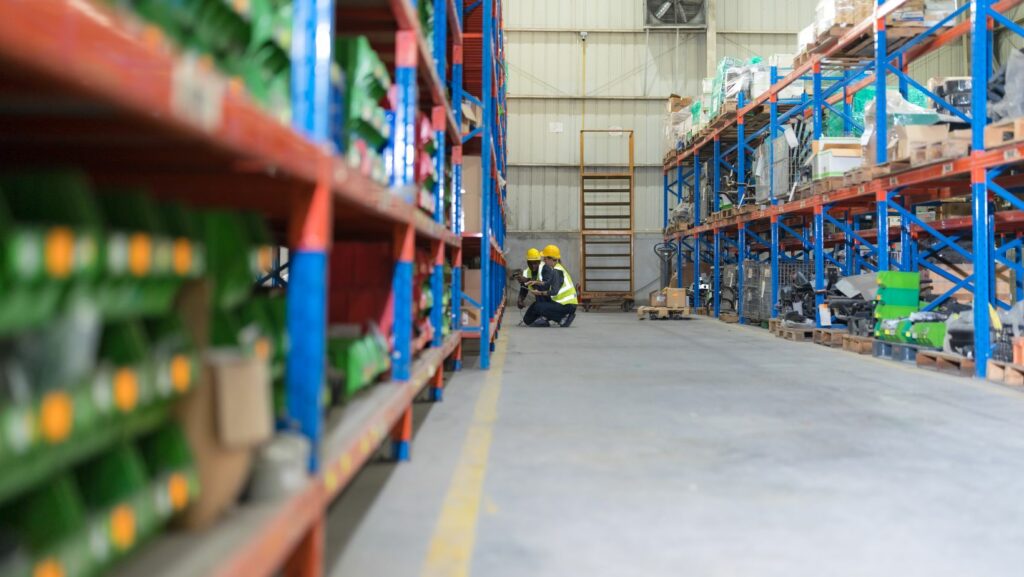Managing industrial properties requires a unique set of skills and expertise to ensure optimal operations and profitability.

From warehouses to manufacturing facilities, effective industrial property management is essential for maximizing asset value and tenant satisfaction. In this article, we delve into the key aspects of industrial property management, including maintenance strategies, tenant relations, and regulatory compliance. Stay tuned to discover valuable insights on how to navigate the complexities of industrial real estate management and unlock the full potential of your industrial properties.
Industrial Property Management
Industrial property management involves various key responsibilities that are essential for maximizing asset value and ensuring tenant satisfaction. It encompasses tasks related to maintenance strategies, tenant relations, and regulatory compliance. Navigating the complexities of industrial real estate management is crucial for unlocking the full potential of industrial properties.
Key Responsibilities

- Property Maintenance: Ensuring the proper upkeep and maintenance of industrial properties to preserve their value and functionality. This includes regular inspections, repairs, and maintenance activities to keep the property in optimal condition.
- Tenant Management: Managing tenant relationships effectively to ensure high occupancy rates and tenant satisfaction. This involves addressing tenant concerns, coordinating lease agreements, and facilitating communication between tenants and property owners.
- Financial Management: Overseeing the financial aspects of industrial properties, including budgeting, rent collection, and financial reporting. Financial management plays a crucial role in maximizing profitability and ensuring the financial sustainability of the property.
- Market Volatility: Industrial property management may face challenges due to fluctuations in the real estate market, affecting property values, rental rates, and demand. Property managers need to adapt to market dynamics to mitigate risks and make informed decisions.
- Regulatory Compliance: Staying compliant with evolving regulations and legal requirements in the industrial real estate sector can pose significant challenges. Property managers must stay updated on changes in laws and regulations to avoid non-compliance issues.
- Maintenance Issues: Managing maintenance and repair needs in industrial properties can be challenging, especially for large or complex facilities. Ensuring timely repairs, maintenance, and upgrades is essential to prevent disruptions and maintain tenant satisfaction.
Effective industrial property management requires a proactive approach to address responsibilities and overcome potential challenges in the dynamic industrial real estate landscape.
Benefits of Effective Industrial Property Management
Effective industrial property management offers numerous benefits that contribute significantly to the success and profitability of industrial real estate assets. It plays a pivotal role in enhancing asset value and reducing risks associated with property ownership and operation.
Asset Value Enhancement
Proactive industrial property management strategies lead to a noticeable increase in asset value over time. By implementing regular maintenance programs, upgrading facilities, and ensuring operational efficiency, property managers can attract high-quality tenants willing to pay a premium for well-maintained industrial spaces. As a result, property owners can command higher rental rates, achieve better tenant retention, and ultimately maximize their return on investment.
Risk Reduction

Sound industrial property management practices are instrumental in mitigating various risks inherent in property ownership. From ensuring compliance with industry regulations to implementing robust security measures, effective property management helps minimize the likelihood of legal disputes, operational disruptions, and financial losses. By conducting thorough risk assessments, developing contingency plans, and fostering positive tenant relationships, property managers can safeguard the long-term profitability and sustainability of industrial properties.Adopting sustainability practices in industrial property management not only reduces environmental impact but also enhances property value and attracts eco-conscious tenants. Implementing energy-efficient systems, waste management programs, and green certifications can position industrial properties as forward-thinking and environmentally responsible, contributing to long-term cost savings and tenant satisfaction.
Effective industrial property management is essential for maximizing asset value and ensuring tenant satisfaction. By focusing on property maintenance, tenant relationships, and financial oversight, property owners can navigate challenges like market fluctuations and regulatory requirements. Leveraging technology, embracing sustainability, and partnering with experienced property management firms are key strategies for success. Evaluating costs, services, and long-term benefits is critical in selecting the right management partner. By making informed decisions and prioritizing alignment with their objectives, industrial property owners can secure the long-term value and success of their investments.

